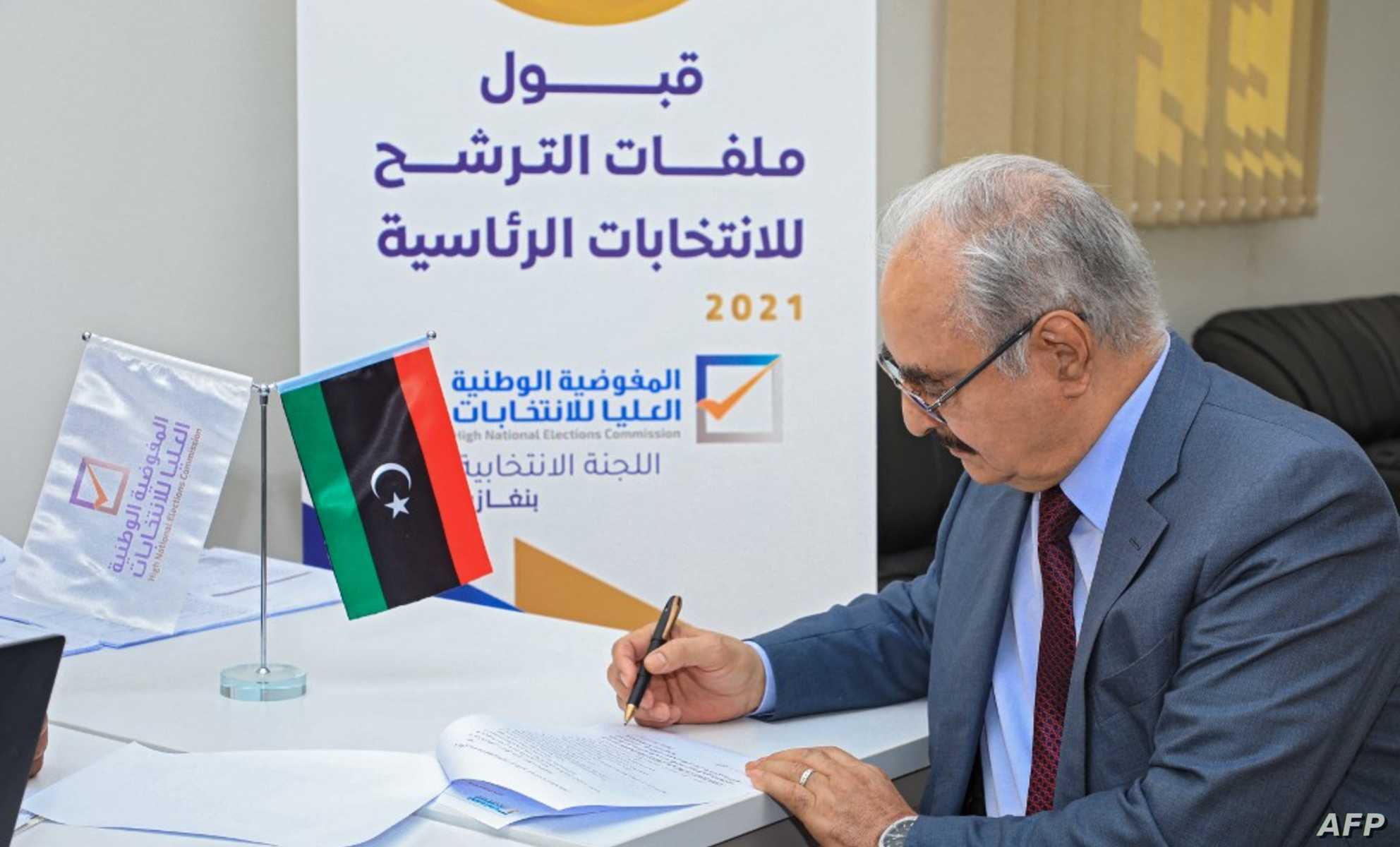Recent consultations between some of Libyan leaders, including Chairman of the High Council of State Khalid al-Mishri and Parliament Speaker Aqila Saleh, eventually led to an agreement on the structure and overall framework of a new roadmap for Libya’s next phase. The roadmap is a multi-step process, the first of which includes formation of committees to start a national dialogue that will lead to the amendment of the draft constitution drafted in 2017 and the referral of the amended law to the Electoral Commission for holding the elections in January next year. The next stage is the election law and the conditions of the candidacy, which seems to be a complicated way full of obstacles to holding elections, and we will be witnessing repetition of the postponement of the elections and escalation of conflicts between the groups.
Libya has been in turmoil since 2011 with an uprising that with the military support of the NATO forces led to the ouster and eventual assassination of Muammar Gaddafi. Since then, armed groups have multiplied rapidly and taken roots throughout the country. Those groups include local and tribal militias, the nationalists, as well as prominent Islamist groups such as al-Qaeda and the Islamic Emirate. The number of mercenaries present in Libya is unknown, but the United Nations estimates that about 20,000 Syrian, Russian and Sudanese soldiers are being recruited to fight in Libya. On the other hand, the country has been facing a civil war since that year, and the country was practically divided into two parts due to a foreign conspiracy; the first is the “Libyan National Unity Government”, which was supported by countries such as Qatar, Turkey, some European countries and the United Nations, and the second is the army of Khalifa Haftar, a retired general based in Benghazi and Tobruk, who is being supported by countries such as Egypt, Russia, Saudi Arabia and the UAE.
Also since the 2014 parliamentary elections, the country has been divided between two rival governments: one in the east backed by Khalifa Haftar, the militant commander, and the other in western Libya, which has the support of a fragile coalition of a number of other militias. The Western government is in fact the one recognized by the United Nations in Tripoli. The presidential election was previously scheduled for December 10, 2018, but was postponed again with the start of the Libyan National Army’s military operations to take control of the capital, Tripoli, and finally with a series of extensions, following an agreement between the interim government and the Libyan National Army and the meetings of the Libyan Political Dialogue Forum in November last year, mediated by the United Nations, was scheduled to take place on December 24, 2021. However, this date was postponed due to disagreements over the election law, including the competence of the candidates and the role of the judiciary in reviewing complaints. Currently, General Khalifa Haftar, the commander of the Libyan army based in Benghazi, in the east of the country, as well as Saif al-Islam, the second son of Colonel Gaddafi, are running for the presidency of Libya; however, the Libyan Electoral Commission announced that it would not publish the list of candidates until the election laws were drafted.
Libyan election officials have said it is impossible to hold the elections on the pre-determined schedule.
Initially, there was talk of extending it for a month and then for six months, but finally in a meeting, it was postponed to 2023 due to the implementation of processes, a meeting for the decisions and interpretation of its implementation still there is no consensus, and other intervention groups in such process, have refused to comment on the fact that such issues obscure prospects of the elections as before.
At the time of the one-month delay, the United Nations had warned that the country was in danger of losing an opportunity to end the conflict; however, it should be borne in mind that the elections, instead of providing a solution to Libya’s problems, may simply exacerbate them.
The existing election law is not accepted by all participants. There are ongoing disputes over the qualifications of some of the main candidates and the final powers of the next president and parliament. On the other hand, the big problem for the oil-rich African country is that no faction wants to step down and pursue a truly democratic process.
Finally, although the postponement of the elections may delay the outbreak of a crisis, it is essential that, given the situation in the country over the past 10 years, ethnic and geographical divisions, and regional and international interventions, extensive and comprehensive dialogue should take place with stakeholders in the crisis and based on that, the constitution and the election law should be formed and put to a referendum. Otherwise, we will see continuation of this cycle, more crises, geographical divergence, and continuation of widespread national, regional, and international violence.










0 Comments